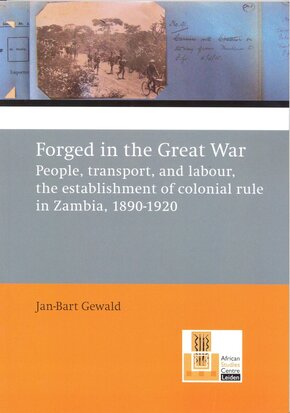
Categories
Search
Shopping cart
Recent publications
- Books /
- ASC publications /
-
Forged in the Great War: People, Transport, and Labour, the Establishment of Colonial Rule in Zambia, 1890-1920,

Information:
ISBN
9789054481478
Auteur
Jan-Bart Gewald
Kaft
Paperback
Uitgeverij
African Studies Centre

